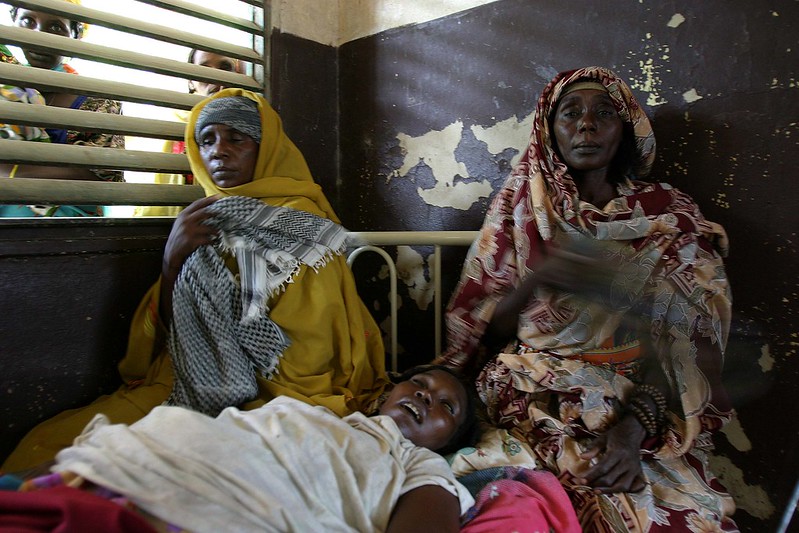 Mosquitoes play dual roles in ecosystems worldwide as major pollinators and a key food source. They also spread life-threatening diseases such as Malaria, Zika Virus and Dengue Fever, making them the world’s deadliest organism. Mosquitoes cause between 750,000 to 1,000,000 deaths annually and cost the global economy more than $12 billion each year. Despite the impact of mosquito-borne diseases, particularly in low to middle-income countries, mosquitoes remain ecologically important. As a result, scientists are striving to develop creative solutions that prevent, reduce and eradicate these diseases without disrupting natural ecosystems.
Mosquitoes play dual roles in ecosystems worldwide as major pollinators and a key food source. They also spread life-threatening diseases such as Malaria, Zika Virus and Dengue Fever, making them the world’s deadliest organism. Mosquitoes cause between 750,000 to 1,000,000 deaths annually and cost the global economy more than $12 billion each year. Despite the impact of mosquito-borne diseases, particularly in low to middle-income countries, mosquitoes remain ecologically important. As a result, scientists are striving to develop creative solutions that prevent, reduce and eradicate these diseases without disrupting natural ecosystems.
Innovative Genetic Solutions
Given the current technology, implementing preventative measures to reduce the spread of mosquito-borne diseases has become a priority. Indeed, scientists are searching for more effective and widespread solutions to decrease the population of disease-spreading mosquitoes. One promising approach focuses on genetically modifying mosquitoes to reduce their population.
This strategy involves releasing mosquitoes carrying a “self-limiting gene” that causes female offspring to die before reaching adulthood. By targeting specific mosquito species known to spread diseases, this approach aims to break the transmission cycle. The Centers for Disease Control and Prevention (CDC) states that this method is reversible; ceasing the release of these genetically modified mosquitoes would allow the population to return to normal levels. Controlling the reproduction of disease-spreading mosquitoes, particularly biting females, could potentially prevent deadly disease outbreaks.
Oxitec’s Pioneering Role in Mosquito Population Control
Oxitec, a U.K.-based biotech company, leads the efforts in genetically modified mosquito (GMM) projects. While their stated aim is to help combat the spread of malaria in Eastern Africa and Central and South America, their broader focus includes decreasing the incidence of all mosquito-borne and vector-borne diseases. Oxitec specifically targets three critical mosquito species: Anopheles stephensi, an invasive species originally from Asia now detected in seven African countries, Anopheles albimanus and Aedes aegypti, native to South America.
Brazil’s Fight Against Dengue
Between 2021 and 2022, Brazil experienced a 400% increase in deaths caused by Dengue. In response, the country has ramped up projects to combat mosquito-borne diseases. Despite these ongoing efforts, Brazil is currently grappling with a Dengue Fever outbreak, with confirmed cases surpassing 5 million. Oxitec has initiated the deployment of ‘just-add-water friendly’ genetically modified mosquitoes (GMMs) into the local mosquito populations to help curb this epidemic. Reports indicate that in areas where these interventions have occurred, populations of Aedes aegypti mosquitoes have been nearly halved. Authorities are aiming for an overall reduction of 20% to mitigate the current state of emergency affecting many regions, including the state of Rio de Janeiro.
Panama’s Use of GMMs
Panama first utilized GMMs in 2014 through a partnership between Oxitec and the Gorgas Institute in Panama City, aiming to decrease the Aedes aegypti population to reduce Dengue transmission. More recently, Panama has been confronting a new Malaria epidemic, with cases in rural communities surging by 65% in 2023. The rise in cases is primarily attributed to an increase in the population of the invasive mosquito Anopheles albimanus. This situation has renewed collaboration between Panama and Oxitec, leading to the release of genetically modified ‘friendly’ Anopheles albimanus mosquitoes intended to diminish the number of this malaria-spreading species.
GMMs in Djibouti
Anopheles stephensi, a mosquito known for transmitting Malaria in South Asia and the Middle East, was confirmed in 2012 to have crossed the Red Sea into the Horn of Africa. Since then, it has been found in seven African countries and is suspected in four others. Djibouti, which nearly eradicated Malaria in 2012 with fewer than 100 confirmed cases, saw cases skyrocket to more than 70,000 by 2020. In May 2024, Djibouti became the first East African country to deploy genetically modified mosquitoes (GMMs) to combat the rising tide of Malaria.
Looking Ahead
Innovative solutions such as deploying genetically modified mosquitoes present promising methods for controlling mosquito populations and reducing disease transmission without disrupting ecological balance. Countries like Brazil, Panama and Djibouti are already implementing these advanced techniques, underscoring the critical need to continue investing in and developing effective strategies to combat mosquito-borne illnesses globally.
– Philip Mundy
Philip Mundy is based in Bristol, UK and focuses on Good News and Global Health for The Borgen Project.
Photo: Flickr
